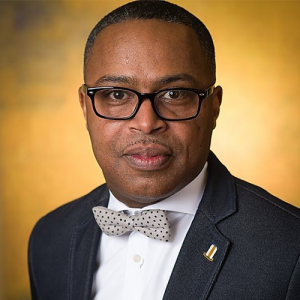 The Celebration Our Teachers Deserve
The Celebration Our Teachers Deserve
The Denver Nuggets basketball team recently presented Carol Ortega with a Most Valuable Teacher award. As a Head Start educator in Denver, Carol has taught hundreds of students over the past 20 years and helped them reach their potential. She received a classroom celebration hosted by Nuggets stars, dinner at Ball Arena, a Nuggets gift bag, and tickets for her and all her students.
Carol took the spotlight this month as the nation marked Teacher Appreciation Week. It’s that time of year when “We Appreciate You!” emails and tweets from politicians start rolling in, along with deals from restaurants and stores. All the free frozen yoghurt and discounted fast-food meals are fine. So are the flowers cookies, warm notes and Starbucks® gift cards that many families give to teachers. These displays of thanks are a nice start, but they’re not what teachers really want, said a survey from the National Education Association this year. Instead, teachers want us to appreciate them by paying them what they’re worth, including their voices in decisions, giving them a realistic workload and providing them with the resources they need.
Teachers made their feelings clear in some of the tweets they wrote this month. “What do I want for teacher appreciation? How about respect for this profession? Respect from students, parents, society? That would be great. Oh, and all year too, not just for one week,” wrote a teacher from Washington state. A Texas teacher wrote, “If you really appreciate us, pay us well and bring back the respect.” And a Washington, DC, teacher agreed, “There just seems to be a certain lack of respect for teachers now, and that makes it harder and harder to do the job.”
That’s been especially true in recent times. No professional preparation program prepared our educators for a pandemic. “Teachers have dealt with school openings and closings and making sure students had what they needed in order to succeed,” said U.S. Secretary of Education Miguel Cardona. “They’ve had students who didn’t have access to a computer, or who were hungry or who had lost family members during the pandemic. And teachers have faced these challenges while taking care of their own families.”
Despite all they’ve done, the current school year has continued to be hard on many of our teachers. They’re now spending extra hours helping children catch up after the learning losses that long months of school closings caused. The teachers are exhausted and burnt out. They also feel even more undervalued than ever before. Memory of all the sacrifices our teachers made during the pandemic has begun to fade from the public mind as the country returns to normal. Many teachers have said they went from “heroes to zeroes” while remaining steadfast in their commitment.
The result is a severe shortage of teachers throughout our system of education, whether in high schools or pre-K. And that should come as no surprise, according to Brad Johnson, an author and speaker on transformation in education. “We need to make big changes to stem the flight of our teachers from the classroom,” he says. “If you only appreciate teachers during Teacher Appreciation Week, don’t be surprised if some don’t return next year.”
And teachers have good reason for grumbling and getting out of the field. Currently, elementary and secondary teachers make about 20 percent less than other employees with similar educations. Early childhood teachers fare even worse with a national median wage of $11.65 an hour, well below the national living wage threshold. Even before COVID, nearly every state in the nation reported shortages of teachers in science, math, English language development and special education. In addition, low-income and students of color are the least likely to have access to a stable teaching workforce since teacher turnover is nearly 50 percent higher in schools that serve poorer populations.
These inequities have led New Jersey Senators Cory Booker and Robert Menendez to back the Respect, Advancement and Increasing Support for Educators (RAISE) Act. If the bill becomes law, it will give educators between $1,000 and $15,000 in refundable tax credits, depending on numerous factors, including the poverty level of their schools. “This legislation would help support educators by using the federal tax code to put more resources into teachers’ pockets. It’s time to reward our society’s unsung heroes by increasing teachers’ take-home pay,” Booker said. So, we should make a “long overdue investment in our nation’s schools that will boost teacher compensation, diversify the teaching workforce and level the playing field between teachers and other professionals,” as Menendez agreed.
And there are some provisions in the bill that directly affect the early childhood field, my particular focus as CEO of the Council. The bill would create a credit of up to $10,000 for early childhood educators with an associate degree or a Child Development Associate® (CDA) Credential™. It would also increase the educator tax deduction from $250 to $500 to offset teachers’ purchases of school supplies and expand eligibility to early childhood teachers.
Measures like these would help teachers stay in the field and keep shaping the next generation. So, we should support teachers by amplifying their voices and advocating for the public funding they need—ways we can show how much we value them long after Teacher Appreciation Week has passed. Of course, there’s no need to stop giving teachers the small presents that have big meaning. Candy, cookies and cards are nice. So are classroom parties with NBA stars and Starbucks gift cards, but they’re not enough. We should celebrate teachers all year long by giving them the bucks they need to live and thrive. Your teachers deserve it for all they do to help students reach for the stars. They’re among the most valuable players in our students’ lives.

 The Celebration Our Teachers Deserve
The Celebration Our Teachers Deserve